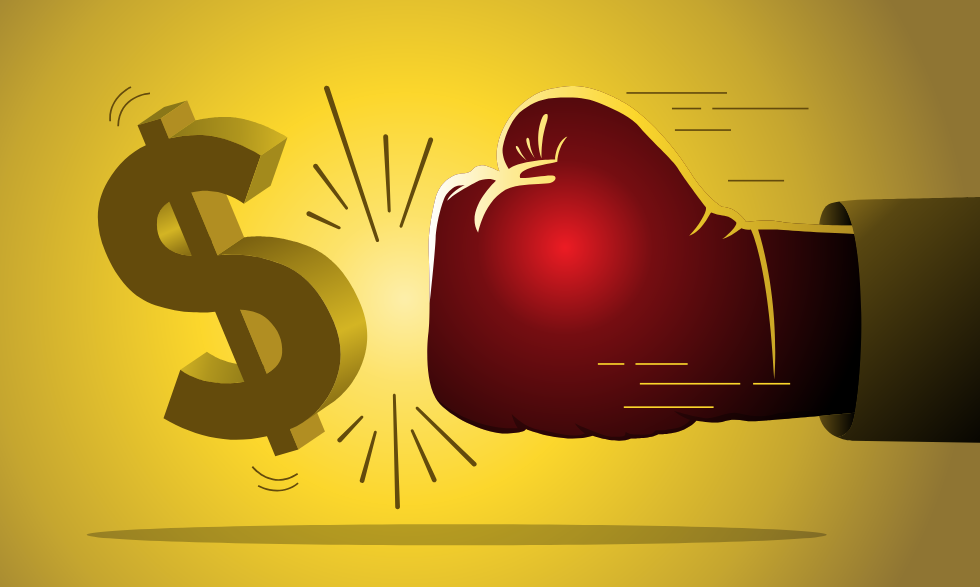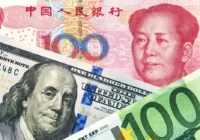Fair Observer will shortly renew our regular publication of an ongoing dialogue we call “Money Matters.” In it we publish the reflections, insights and matters for debate shared by a group of experts and contributors willing to participate in an open dialogue aimed at making sense of the crucial decisions and initiatives now being made concerning international payment systems and the effect these decisions are likely to have on an evolving geopolitical order. The decisions currently debated and increasingly put into practice will shape the future global economy impacting the lives of the eight billion inhabitants of our planet.
Among the prominent experts, former central banker at the Federal Reserve Bank of New York, Kathleen Tyson, recently tweeted concerning the global trend of central banks to diversify away from strict dependence on the US dollar: “Currency optionality is now a matter of economic and national security. US threats of more tariffs and sanctions against states moving to Local Currency Trade demonstrate the dangers of dollar dependence and the urgency of optionality and resiliency.”
Everyone understands the meaning of resiliency. But what about optionality?
Today’s Weekly Devil’s Dictionary definition:
Optionality:
A euphemistic synonym of the common noun “choice.” It is employed to avoid provoking the simulacrum of “moral judgment” exercised by dominant powers who believe that their set of rules intended to normalize economic behavior endow them with the right to coerce others and the duty to limit others’ ability to choose.
Contextual note
Tyson is of course referring to the growing trend seen in a diversity of nations to devise methods, techniques and technology that will allow central banks and other foreign exchange operators to conduct transactions flexibly and, when possible, directly between the widest range of individual currencies. This means adopting an attitude that aims at avoiding dependence on what used to be the most convenient solution for everyone: holding US dollars reserves.
So why pedantically insist on a technocratic neologism? Why not be more simple and natural and call this “currency choice?”
There are several comprehensible reasons for this innovation in vocabulary. Unlike the idea behind the word choice, optionality refers not to the act of choosing but to a persistent state in which flexible strategic choice appears as the default setting. In contrast, the idea of choice to modern ears evokes a specific act governed as much by taste as rational calculation. It even includes the idea of not choosing. Optionality implies the necessity to choose.
The emergence of the notion of “consumer choice” in the 20th century has polluted our vocabulary. It defines a mentality in which consumers, confronted with a diversity of brands, exercise their free will by choosing the one they find most attractive. This has even affected the model of democracy in the US. Americans now understand that they have a choice between exactly two viable brands. Elections are about convincing the electorate that one brand is better than the other.
The advent of the consumer society enabled marketers to develop a complementary concept, the notion of impulse purchasing decisions fueled by advertising. Given the seriousness of foreign exchange, optionality can thus be seen as the necessary alternative to the ultimately trivial notion of consumer choice.
Unlike consumer decisions, optionality is emotionally neutral. It supposes cold rationality in its decision making. Some find it ironic that at the same time dominant macro theories of modern capitalism posit and indeed require a belief in the existence of homo economicus — a purely rational being capable at all times of calculating what best correlated with their interest — the notion of impulse buying emerged as a staple of the “science” of marketing.
To understand the transition from the increasingly unipolar, normative and conformist 20th century and the disruptive increasingly multipolar 21st century, pondering these distinctions of vocabulary can prove helpful. It’s too easy to dismiss a word like optionality as a futile example of a self-enamored professional elite’s taste for jargon, designed to meet their need to feel both different from and superior to the common culture.
What we’re seeing today is an emerging world wounded and sent into disarray by Washington’s obsessive recourse to sanctions. Rather than seeking to undermine the dollar, the wise bankers and politicians are focusing on defining a field of options in which normal economic relationships may play out, free of the fear of coercion and intimidation. Rather than taking the form of a slave revolt, they are inventing not only new practices and technologies, but even a vocabulary that helps define a new economic culture.
Historical note
Since the beginning of the 21st century, two major events have transformed the way nations understand the world order. When President George W. Bush responded to the drama of the September 11 attacks by launching a war with a nation state, Afghanistan, instead of framing the issue as a criminal affair, his futile “forever wars” focused on regime change ultimately undermined the image of the US as the unipolar enforcer of a self-defined rules-based order. The prestige of its global military presence, ready to police the world in the name of democracy, took a serious hit. President Joe Biden’s ignominious retreat from Afghanistan in 2021, after 20 years of feckless war, confirmed the world’s worst suspicions.
The supposedly indomitable US military machine had confirmed what should have been clear with the fall of Saigon nearly 50 years earlier: Even with no rival global power on Earth, the US military was incapable of imposing its will on other regions of the world. Thanks to Bush, one pillar of US supremacy was seriously cracked for all the world to see.
The financial crisis of 2007–2008 offered an initial glimpse of the weakness of the other pillar: the US economy, its tentacular stock market and the almighty dollar. The shock was real but not fatal. Thanks to President Barack Obama’s commitment to quantitative easing (QE), the dollar maintained its pivotal role, but at its core it was already seriously fragilized.
After the withdrawal from Afghanistan, Biden made a new strategic error that had the effect of confirming the world’s perception that currency optionality had become an existential necessity. For decades, Washington has been addicted to sanctions designed to weaken and ultimately topple the governments of every nation that fails to show due respect to what Noam Chomsky has called “the Godfather.” The extreme measures taken in reaction to Russian President Vladimir Putin’s invasion of Ukraine in February 2022 brought to the fore what should have been obvious: every nation should fear the dollar. When Biden cut Russia off from the SWIFT payment system and threatened to punish any country that did business with Russia, nations across the face of the globe realized that holding too many dollars, though convenient for trade, entailed a possibly existential risk.
The “de-dollarization” movement has been growing slowly over time. In 2016, Obama’s Treasury Secretary Jack Lew expressed his awareness of the risk for the US. He warned that the “escalation of financial sanctions will only accelerate this trend, precipitating further de-dollarization as more countries capitalize on digitalization to expand their use of LCS for bilateral transactions and to develop more hedging instruments.” He added this observation: “The more we condition the use of the dollar and our financial system on adherence to US foreign policy, the more the risk of migration to other currencies and other financial systems in the medium term grows.”
As Lew predicted, the medium term is living up to his forecast. Currency optionality will inexorably be part of a new world order.
*[In the age of Oscar Wilde and Mark Twain, another American wit, the journalist Ambrose Bierce produced a series of satirical definitions of commonly used terms, throwing light on their hidden meanings in real discourse. Bierce eventually collected and published them as a book, The Devil’s Dictionary, in 1911. We have shamelessly appropriated his title in the interest of continuing his wholesome pedagogical effort to enlighten generations of readers of the news. Read more of Fair Observer Devil’s Dictionary.]
[Lee Thompson-Kolar edited this piece.]
The views expressed in this article are the author’s own and do not necessarily reflect Fair Observer’s editorial policy.
Support Fair Observer
We rely on your support for our independence, diversity and quality.
For more than 10 years, Fair Observer has been free, fair and independent. No billionaire owns us, no advertisers control us. We are a reader-supported nonprofit. Unlike many other publications, we keep our content free for readers regardless of where they live or whether they can afford to pay. We have no paywalls and no ads.
In the post-truth era of fake news, echo chambers and filter bubbles, we publish a plurality of perspectives from around the world. Anyone can publish with us, but everyone goes through a rigorous editorial process. So, you get fact-checked, well-reasoned content instead of noise.
We publish 2,500+ voices from 90+ countries. We also conduct education and training programs
on subjects ranging from digital media and journalism to writing and critical thinking. This
doesn’t come cheap. Servers, editors, trainers and web developers cost
money.
Please consider supporting us on a regular basis as a recurring donor or a
sustaining member.
Will you support FO’s journalism?
We rely on your support for our independence, diversity and quality.










Comment